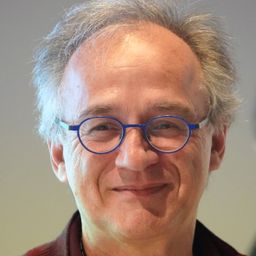
Anne Dalmasso
Anne Dalmasso, professeure d'histoire contemporaine, à l'université Grenoble Alpes, chercheuse au LARHRA (laboratoire de recherche historique Rhône Alpes, UMR 5190) Champs de recherche : histoire des impacts sociaux, environnementaux, sanitaires de l’industrialisation et de la désindustrialisation, histoire de la marchandisation des pratiques sociales et des territoires, du 19ème au 21ème siècle.
Dernières publications en lien avec le thème
- DALMASSO (Anne), « Territoires et désindustrialisations : trajectoires d’entreprises et marginalisation territoriale », Jean Claude Daumas, Ivan Kharaba, Philippe Mioche, La désindustrialisation : une fatalité ?, Presses Universitaires de Franche-Comté, 2017, pp. 139-154.
- DALMASSO (Anne), « Pierre Novat, un regard au service des stations de ski », Boutroy (Eric), Vignal (Bénédicte) Reynier (Véronique) dir., Une montagne d’innovation. Quelles dynamiques pour le secteur outdoor ?, PUG, 2017, p. 163-172
- DALMASSO Anne, MORISSET Lucie« Une histoire croisée des territoires de l’aluminium est-elle possible ? Enjeux epistémologiques et mémoriels », La Revue Française d'Histoire Economique, vol 2015/2-1/2016, n° 4-5, pp. 186-198
- DALMASSO (Anne) « Désindustrialisation et patrimonialisation dans les vallées alpines françaises. Le cas des industries de l’aluminium », Dominique Barjot et Marco Bertilorenzi (dir.), Aluminium. Du métal de luxe au métal de masse (XIXe-XXIe siècle) / From precious metal to mass commodity (19th-21st century), PUPS, 2016, p. 253-265
Sessions in which Anne Dalmasso participates
Tuesday 30 August, 2022
Sessions in which Anne Dalmasso attends
Tuesday 30 August, 2022
Efforts to preserve industrial heritage occurs in a socio-economic and political context. But what is being preserved and for whom? And, relatedly, what is the relationship between industrial heritage sites and the deindustrialized working-class communities that often adjoin them? The keynote will consider the ways that the preservation of Montreal’s Lachine Canal, Canada’s premier industrial heritage site, has enabled gentrification processes that have forc...
Wednesday 31 August, 2022
In this lecture, I would like to talk about deindustrialised communities, heritage and memory in the context of right-wing populism. Drawing on studies of memory and heritage, I argue that right-wing populists have cornered the market on talking about the past of deindustrialised communities. They have successfully misrepresented this rich and complex history to fuel rage, resentment, fear and reactionary nostalgia. Indeed, ‘the past’, and in particular the industr...
Thursday 1 September, 2022
From its construction to its restoration, immerse yourself in the now and then of this key Canadian industrial heritage site. A country’s central maritime route, a major inland port, the Canadian Lowell (using hydraulic power), the cradle of industrialization, Smokey Valley (using steam), a manufacturing hotspot, the Lachine Canal is all of this and more. For it is also a national historic site, for which
This lecture will argue that the landscapes of industrial heritage that can be found in different parts of the world are directly related to the place-specific trajectories of deindustrialization. In other words: the different ways in which deindustrialization impacts on local communities has a direct bearing on the emergence of forms of industrial heritage. I will differentialte between deindustrialization paths and related industrial heritage regimes in a) Anglo-...
Friday 2 September, 2022
In the refusal of people in communities abandoned by industrial capital to abandon their own places, we can read an implicit critique of the mobility and unaccountability of capital, raised by those who were once inside (however tenuously or uncomfortably) and now find themselves marginalized, “left behind.” The desire to catch up again, whether through attracting new investment or transvaluing abandoned sites as tourist attractions, makes this an essentially conservative critique that is ...
Come and share the good times of the congress and celebrate your scientific and professional discoveries in a former fruit jam factory, Usine C, built in 1913 and transformed at the end of the 1970s into a place for creation and dissemination.Discover Montreal's gastronomy thanks to an exceptional caterer. Learn about Montreal's musical heritage and the history of the industrial district that brought it to life. Then hear and experience Quebec's musical tradition as you are carried ...




